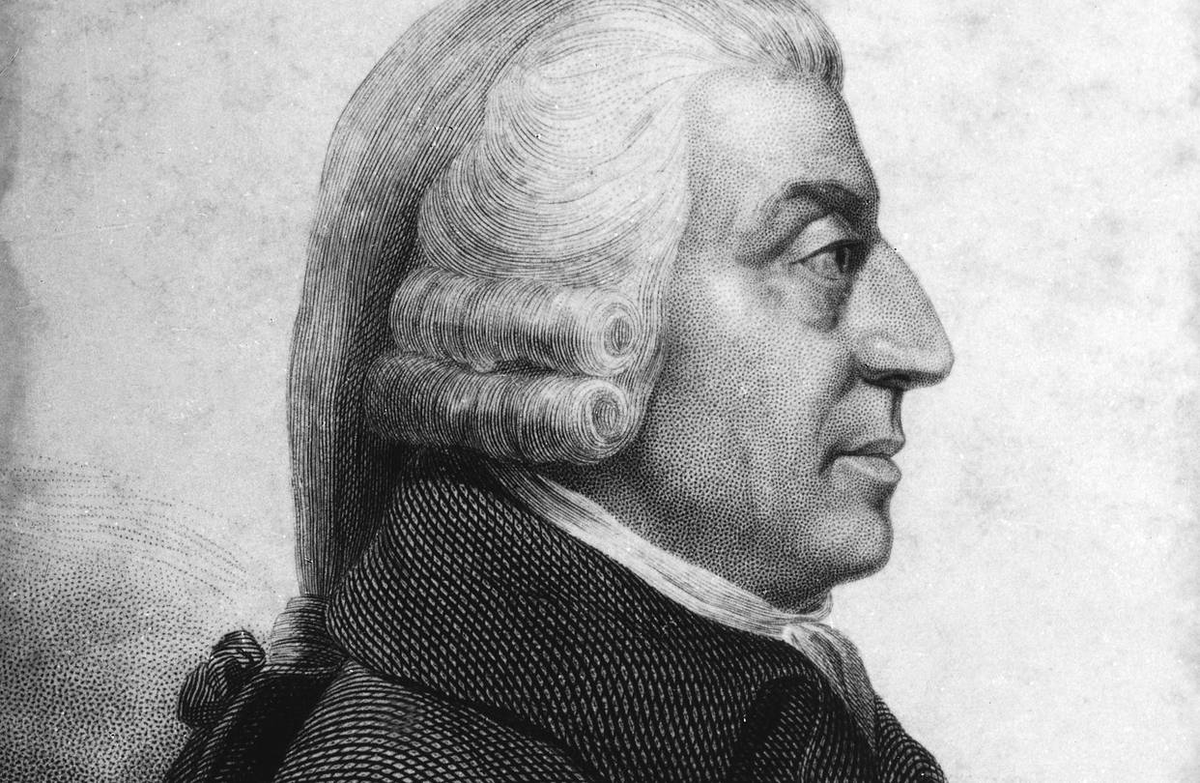Shocking: Court finds that law that never mentions tariffs doesn't give the president unlimited power to levy tariffs. 
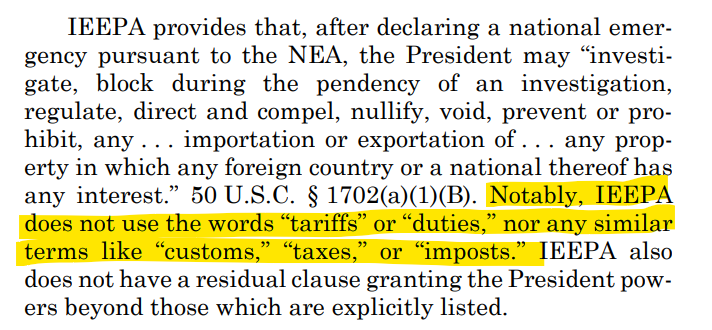
Just like the lower court, the appeals court is not relying in any way on its opinions on the soundness of tariffs, and it is not ruling on whether the executive branch may ever levy tariffs. 

"We first consider the statutory text"
A beautiful thing to see in a judicial opinion
A beautiful thing to see in a judicial opinion
The court rightly points out that Trump has no shortage of legal options to impose tariffs.
But he didn't use those because they involve review processes, deadlines, public comment periods, and other restraints on his unilateral action.
But he didn't use those because they involve review processes, deadlines, public comment periods, and other restraints on his unilateral action.
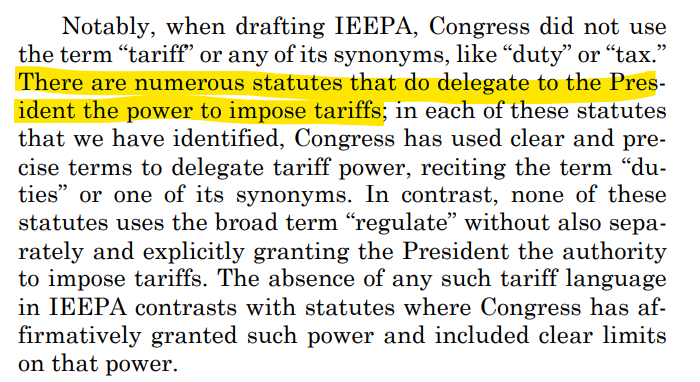
"The Government’s interpretation of IEEPA as providing the President power to impose unlimited tariffs also runs afoul of the major questions doctrine."
There's a choir of angels singing in the background here.
There's a choir of angels singing in the background here.
The court cites West Virginia v. EPA (which struck down an Obama clean air rule) and Biden v. Nebraska (which struck down the student-loan "forgiveness") here.
Both opinions written by Chief Justice Roberts.
Both opinions written by Chief Justice Roberts.
If you're confused as to why Trump's first-term tariffs were allowed but these are not, here's the reason why:
They were done under a different law that doesn't give him, or any president, the authority to do so.
They were done under a different law that doesn't give him, or any president, the authority to do so.
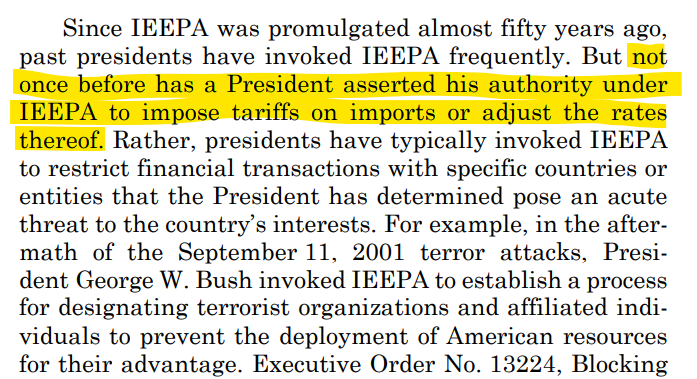
"The invocation of IEEPA to impose tariffs on nearly every country in the world is undoubtedly a significant departure from these previous invocations."
Ya think?
Ya think?
The court explicitly compares the Trump administration's argument for broad tariffs to the Biden administration's argument for broad student-debt forgiveness. 
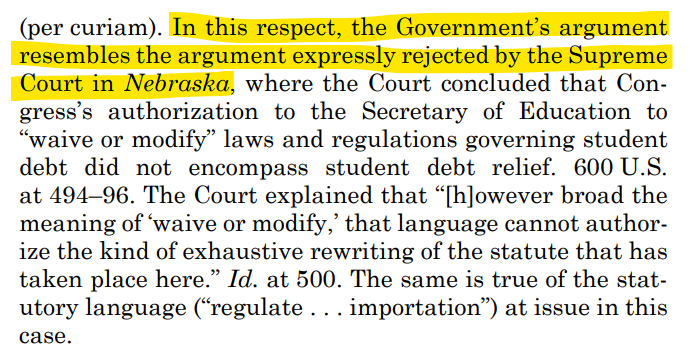
To the government's defense of the tariffs as a national security measure, the court's response is simple:
The power to tax is not a national security power, and it belongs to Congress.
The power to tax is not a national security power, and it belongs to Congress.
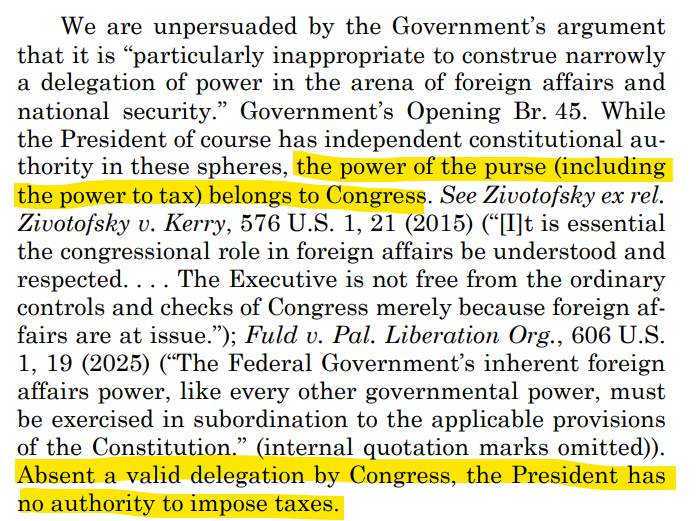
Second group of judges adds a concurrence saying they agree with the majority in full AND believe IEEPA does not allow the president to impose any tariffs at all.
And the dissent that supported Trump's power to impose tariffs under IEEPA was written by an Obama-appointed judge.
These were just some highlights. You can read the whole thing for yourself here:
storage.courtlistener.com/recap/gov.usco…
storage.courtlistener.com/recap/gov.usco…
• • •
Missing some Tweet in this thread? You can try to
force a refresh


